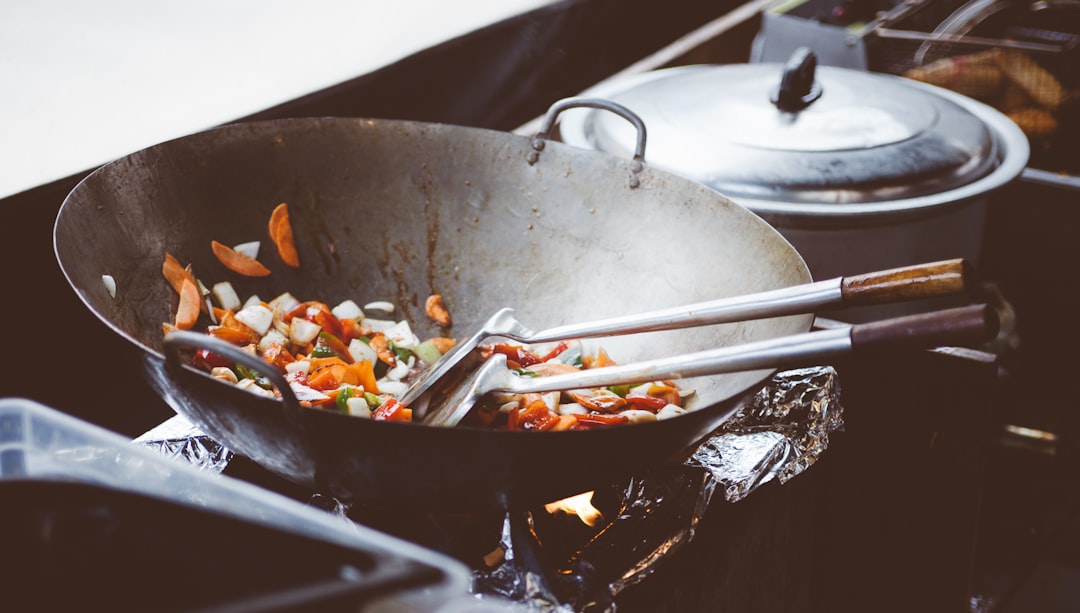Proper Onion Storage: Tips and Tricks

Proper onion storage is essential for maintaining the freshness and flavor of this versatile vegetable. Onions are a staple in many kitchens, adding depth and flavor to a wide variety of dishes. However, if not stored correctly, onions can spoil quickly and lose their taste and texture. By understanding the best conditions for storing onions and following proper storage techniques, you can ensure that your onions stay fresh for longer periods of time.
There are several benefits to storing onions correctly. First and foremost, it helps to extend their shelf life. Onions that are stored properly can last for several months, allowing you to enjoy them long after they have been harvested. Additionally, proper storage helps to maintain the quality of the onions. When stored in the right conditions, onions retain their flavor and texture, making them a valuable ingredient in your cooking. Lastly, storing onions correctly can save you money. By preventing spoilage and waste, you can make the most out of your onion purchases and reduce food waste in your household.
The Best Conditions for Storing Onions
To ensure that your onions stay fresh for as long as possible, it is important to store them in the right conditions. The ideal temperature for onion storage is between 45-55 degrees Fahrenheit (7-13 degrees Celsius). This temperature range helps to slow down the sprouting process and prevent spoilage. Additionally, onions should be stored in a cool, dry place with good ventilation. High humidity can cause onions to rot, so it is important to choose a storage location that is well-ventilated.
Exposure to sunlight can also cause onions to spoil quickly. Sunlight can cause onions to sprout and become soft or moldy. Therefore, it is important to store onions in a dark place, such as a pantry or cellar. If you don’t have access to a dark storage area, you can also store onions in a paper bag or wrap them individually in newspaper to protect them from sunlight.
Choosing the Right Container for Onion Storage
When it comes to choosing a container for onion storage, there are several options to consider. The most common containers for onion storage include mesh bags, baskets, and crates. Each type of container has its pros and cons.
Mesh bags are a popular choice for onion storage because they allow for good air circulation. This helps to prevent moisture buildup and allows the onions to breathe. However, mesh bags may not provide enough protection from sunlight, so it is important to store them in a dark place.
Baskets are another option for onion storage. They provide good ventilation and can be stacked to save space. However, baskets may not offer as much protection from sunlight as other containers, so it is important to choose a dark storage location.
Crates are a more durable option for onion storage. They provide good ventilation and protection from sunlight. However, crates can take up more space compared to other containers.
Based on these considerations, the best container for onion storage is a crate or a basket that provides good ventilation and protection from sunlight. It is important to choose a container that allows air to circulate around the onions and prevents moisture buildup.
How to Store Onions in the Pantry
| Storage Method | Duration | Quality |
|---|---|---|
| Whole onions in a cool, dry place | 2-3 months | Good |
| Cut onions in an airtight container in the fridge | 7-10 days | Good |
| Cut onions in a plastic bag in the fridge | 7-10 days | Fair |
| Cut onions in the freezer | 6-8 months | Good |
Storing onions in the pantry is a common practice for many households. To store onions in the pantry, follow these steps:
1. Choose a cool, dry, and dark location in your pantry to store the onions.
2. Place the onions in a crate or basket that provides good ventilation.
3. Make sure the onions are not touching each other to prevent the spread of rot or mold.
4. Check the onions regularly for any signs of spoilage or sprouting.
5. Remove any onions that show signs of spoilage or sprouting to prevent them from affecting the rest of the batch.
To maintain the freshness of stored onions, it is important to follow a few tips. First, avoid storing onions near potatoes or other fruits and vegetables that release ethylene gas. Ethylene gas can cause onions to spoil quickly. Additionally, avoid storing onions near strong-smelling foods, as they can absorb odors easily. Lastly, make sure to handle onions gently to prevent bruising or damage, as this can lead to spoilage.
How to Store Onions in the Refrigerator
While storing onions in the pantry is a common practice, there are certain situations where refrigeration may be necessary. For example, if you live in a hot and humid climate, refrigerating onions can help to extend their shelf life. To store onions in the refrigerator, follow these steps:
1. Choose a cool and dry area in your refrigerator to store the onions.
2. Place the onions in a perforated plastic bag or a mesh bag to allow for air circulation.
3. Make sure the onions are not touching each other to prevent the spread of rot or mold.
4. Check the onions regularly for any signs of spoilage or sprouting.
5. Remove any onions that show signs of spoilage or sprouting to prevent them from affecting the rest of the batch.
It is important to note that refrigeration can change the texture and flavor of onions. Cold temperatures can make onions soft and mushy, so it is best to use refrigerated onions within a few weeks.
To prevent moisture buildup in the refrigerator, it is important to store onions in a perforated plastic bag or a mesh bag. This allows for air circulation and helps to prevent condensation, which can lead to rot or mold.
How to Store Onions in the Freezer

Freezing onions is a great way to preserve them for long periods of time. Frozen onions can be used in a variety of dishes, such as soups, stews, and stir-fries. To freeze onions, follow these steps:
1. Peel and chop the onions into desired sizes.
2. Blanch the onions by placing them in boiling water for 1-2 minutes.
3. Remove the onions from the boiling water and immediately transfer them to an ice bath to stop the cooking process.
4. Drain the onions well and pat them dry with a paper towel.
5. Place the onions in a freezer-safe container or a resealable plastic bag.
6. Label the container or bag with the date and contents.
7. Place the container or bag in the freezer.
Frozen onions can be stored for up to 12 months. To thaw frozen onions, simply remove them from the freezer and let them thaw in the refrigerator overnight. Thawed onions can be used in cooking just like fresh onions.
How to Store Cut Onions
If you have leftover cut onions, it is important to store them properly to prevent spoilage. Cut onions can be stored in the refrigerator for up to 7-10 days. To store cut onions, follow these best practices:
1. Place the cut onions in an airtight container or a resealable plastic bag.
2. Make sure the container or bag is tightly sealed to prevent moisture buildup.
3. Label the container or bag with the date and contents.
4. Store the cut onions in the refrigerator.
To prevent spoilage, it is important to handle cut onions with clean hands and utensils. Additionally, make sure to remove any outer layers that may have been exposed to bacteria or mold before storing.
How to Prevent Onions from Sprouting
Onion sprouting can be frustrating, as it can lead to a loss of flavor and texture. To prevent onions from sprouting, follow these tips:
1. Store onions in a cool and dry place with good ventilation.
2. Avoid storing onions near potatoes or other fruits and vegetables that release ethylene gas.
3. Check onions regularly for any signs of sprouting and remove any sprouted onions immediately.
4. Store onions in a dark place to prevent exposure to sunlight.
If you do find sprouted onions, don’t throw them away just yet. Sprouted onions can still be used in cooking, although they may have a milder flavor. Simply remove the sprouts and use the rest of the onion as you normally would.
How to Tell If Onions Have Gone Bad
It is important to know how to identify spoiled onions to prevent foodborne illnesses. Here are some signs that indicate onions have gone bad:
1. Soft or mushy texture: Onions should be firm and crisp. If they feel soft or mushy, it is a sign that they have started to spoil.
2. Mold or rot: Look for any signs of mold or rot on the surface of the onion. Mold can appear as fuzzy patches, while rot can appear as dark spots or discoloration.
3. Foul odor: If the onion has a strong, unpleasant odor, it is a sign that it has gone bad.
If you notice any of these signs, it is best to discard the onion to prevent foodborne illnesses.
Tips for Using Stored Onions in Cooking
Stored onions can be used in a variety of dishes to add flavor and depth. Here are some tips for using stored onions in cooking:
1. Properly prepare stored onions before using them in cooking. This includes peeling, chopping, or dicing them according to your recipe’s requirements.
2. Saute stored onions in oil or butter to bring out their natural sweetness and flavor.
3. Use stored onions as a base for soups, stews, and sauces.
4. Incorporate stored onions into everyday meals, such as omelets, stir-fries, and salads.
5. Experiment with different cooking methods, such as caramelizing or pickling onions, to enhance their flavor.
By following these tips, you can make the most out of your stored onions and create delicious meals in your kitchen.
Proper onion storage is essential for maintaining the freshness and flavor of this versatile vegetable. By storing onions in the right conditions, choosing the right container, and following proper storage techniques, you can extend the shelf life of onions and reduce food waste. Whether you store onions in the pantry, refrigerator, or freezer, it is important to check them regularly for any signs of spoilage or sprouting. By incorporating stored onions into your cooking, you can add depth and flavor to a wide variety of dishes. With these tips in mind, you can maximize the freshness and flavor of your onions and enjoy them for longer periods of time.



